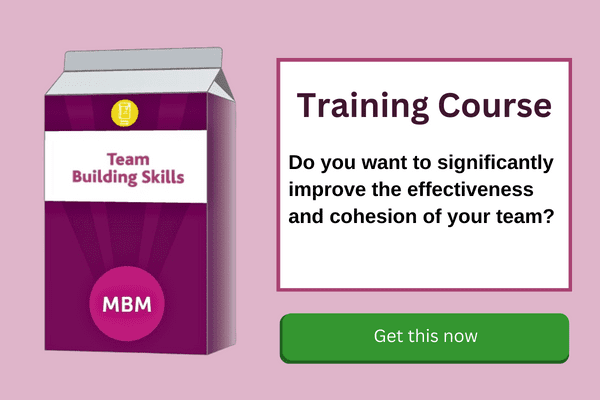Boost Job Satisfaction by Unlocking Skill Enhancement!
Your processes and operations can make or break your business. Optimising them, with the help and expertise of a lean coach is essential. It’s often even more than recruiting the right people, marketing your product or service, and financing your business.
Lean coaching proves to be the key for many organisations when improving internal processes, and dynamics and increasing their bottom line.
This article looks into what a lean coach is, and why it’s so important for forward-looking businesses. We even shed light on expected lean coach salaries.
So, whether you’re a business owner looking to understand what a lean coach does before hiring one, or want to become a lean coach yourself, this one’s for you.
What Is Lean Management?

Before we look into what principles and responsibilities a lean coach has, we must first understand the historical context of lean management.
Lean management dates back to the 1930s and post-World War II Japan, with Toyota a lean leader. Although process thinking was already a key part of manufacturing, thanks in part to Henry Ford, Toyota has changed the game by optimising processes.
By introducing a series of simple innovations the Toyota team recognised that you can strengthen both the process flow and the variety of products the company offers. Since then, this way of thinking has spread beyond manufacturing and into the toolkit of everyone starting a business.
At its core, lean management focuses on eliminating any activity that doesn’t provide value to the customer.”
Not only does it minimise waste but optimises the resources at hand and continuously improves processes to deliver even greater value to the customer.
You can boost performance and product quality, control costs and improve customer and employee satisfaction.
The concept of lean management is special because it is customer-centric, flexible, and focuses on continuously improving processes.
In this way, all employees and team members focus on high-value tasks. They are also welcome to contribute new ideas to help the company stay one step ahead of the competition.

What Does a Lean Coach Do?
Lean coaching takes the principles of lean management a step further, by incorporating coaching techniques to bring about a company culture of continuous improvement.
Therefore, lean coaches are responsible for creating conditions for all people within the organisation to improve their skills so that they can do their job better – not only in terms of quality but also in a way that boosts their job satisfaction.”
By empowering employees, helping them overcome challenges alone, and creating a safe space for feedback and ideas, lean coaches promote shared ownership and accountability. Lean coaching is not a one-way street, however.
During the coaching process, lean coaches recognise the expertise of the individuals they are coaching and identify the most effective techniques to address the current needs.
Unlike traditional coaching, lean coaches avoid telling the learner what to do, but give them the opportunity and skills to solve challenges themselves.
Asking and answering: What will be the most effective process to achieve the organisation’s goals?
So what are the responsibilities of the lean coach?
If we had to create a mock lean coach job description, it would be:
Lean Coach Job Description
- Assessing each learner’s needs in a specific context and time, considering the learner’s current job, skill level and willingness to embrace lean management principles.
- Recognising the main challenge at hand and its scale.
- Understanding what the organisation’s goals are and the part the learner plays in achieving these goals.
- Challenging the learner while staying respectful.
- Guiding them to come up with their own solutions.
- Strengthening the skills of each team member, so that the job is done better, but also on time.
Sticky Learning ® is 7 times more effective than 1-day training courses. Plus, you will get a Chain of Evidence proving your Return on Investment. Discover soft skills training that changes behaviours long term.

What is Agile Development?

Lean coaches often have other tools in their arsenal, with agile development being one of them. Agile development principles complement lean management by speeding up processes and embracing flexibility.
How exactly? Make an early prototype or version of the service or product, where customers can give feedback. By putting it out there and receiving feedback, the organisation can make the necessary adjustments and decisions based on cold hard facts.
The Agile Manifesto, which outlines the main principles of agile development, states:
We are uncovering better ways of developing software by doing it and helping others do it. Through this work we have come to value: Individuals and interactions over processes and tools; Working software over comprehensive documentation; Customer collaboration over contract negotiation; Responding to change over following a plan. That is, while there is value in the items on the right, we value the items on the left more.”
This manifesto, which agile coaches still use today, was created in 2001. Seventeen people met in Snowbird, Utah, and expressed their frustration with software development amid the fast-growing Internet boom.
At the time, software companies focused so much on documenting their development cycles that they lost track of the core value: providing solutions to customers.
The Snowbird 17 Also Introduced 12 Principles.
These are now applied in various sectors beyond software development.
These are:
- Our highest priority is to satisfy the customer through early and continuous delivery of valuable software.
- Welcome changing requirements, even late in development. Agile processes harness change for the customer’s competitive advantage.
- Deliver working software frequently, from a couple of weeks to a couple of months, with a preference for the shorter timescale.
- Business people and developers must work together daily throughout the project.
- Build projects around motivated individuals. Give them the environment and support they need, and trust them to get the job done.
- The most efficient and effective method of conveying information to and within a development team is a conversation face-to-face.
- Working software is the primary measure of progress.
- Agile processes promote sustainable development. The sponsors, developers, and users should be able to maintain a constant pace indefinitely.
- Continuous attention to technical excellence and good design enhances agility.
- Simplicity—the art of maximising the amount of work not done—is essential.
- The best architectures, requirements, and designs emerge from self-organising teams.
- Periodically the team reflects on how to become more effective, then tunes and adjusts its behaviour accordingly.
What’s the Difference Between Lean and Agile Management?
Since agile management originated in and was tailored for the software development sector, it primarily concentrates on enhancing design and crafting superior products.
In contrast, lean management methods centre on process improvement and optimisation, emphasising the speed at which the product or service can be developed. Agile primarily focuses on optimising the development of this product.
In addition, agile methodologies mostly apply to creative or ongoing projects, while lean is more about repetitive tasks. While agile and lean may initially be seen as two opposing methodologies, they can be blended according to the specific needs of each organisation.
So, What is a Lean-Agile Coach?
A lean-agile coach adopts both approaches and blends them, essentially helping organisations build better products using better processes.
The root of many product quality problems are inefficient processes, and this is where a lean-agile coach can help.
The coach can train employees at all levels of the organisation to identify processes that will improve customer value, decrease waste, and improve product quality. Also, lean coach training enables leaders to effectively receive and implement feedback, continuously optimising their products or services based on this feedback.
7 Ways Lean Coaching Benefits Businesses

#1. Improved Efficiency and Productivity
In this article, we’ve discussed processes extensively, so it’s no surprise that one of the main benefits of lean coaching is the improvement of processes. By analysing workflows and identifying bottlenecks, lean coaches can guide teams to eliminate processes that are simply not working and streamline all operations.
Doing this can make a difference, as it helps businesses operate more efficiently and make the most of their resources.
#2. Flexibility and Innovation
Successful companies are forward-looking and open to adapting to different situations. Lean coaching helps people at different company levels to be flexible, embrace change, and leverage market changes to innovate.
A lean and agile business requires teams to adopt new technologies effectively to help streamline operations and enhance efficiency. A lean coach can advise on the best tools to help address weaker areas within a business.
Recommendations could be anything from card readers for improved payment processing, artificial intelligence (AI) to analyse data and automate routine tasks and incorporating software such as customer relationship management (CRM) to assist in managing customer engagement and a project management tool to help teams communicate and work effectively (even when remote).
In this way, businesses can stay one step ahead of their competition, make the most of new opportunities, and stay relevant.
#3. Happier Customers
Lean coaching is all about implementing a customer-centric approach to business operations. By truly understanding their target audience’s needs, teams can focus on delivering the products and services that these customers want and need.
Through lean coaching, they also identify which processes work and which require improvement, resulting in better products and services and, above all, customer satisfaction.
#4. Stronger Teams
Lean coaching can help employees feel they belong to the company. Not only do they learn crucial problem-solving skills, but they also learn how to take ownership.
Most importantly, they’re encouraged to give feedback and share ideas on how to improve workflows. This culture of collaboration is crucial, as it develops skilled teams that are motivated by their work and committed to the company’s success.
#5. Support Sustainable Growth
As the saying goes, “Rome wasn’t built in a day.” Lean coaching focuses on driving sustainable growth for long-term success, rather than quick financial gains. By improving processes that facilitate sustainable growth, lean coaches lead teams to build a strong foundation that have the tools to withstand any challenge.
In this way, lean coaches prepare teams to successfully navigate current ups and downs, with a focus on long-term success.
#6. Improved Decision Making
Lean coaching prioritises data-driven decisions. By analysing KPIs, market trends, and customer feedback, lean coaches guide business owners and managers to make informed decisions that contribute to the overall goal of sustainable growth.
Instead of focusing on mere intuition or short-term fads, business owners and managers learn to take wiser approaches and strategies.
#7. Faster Time-to-market
Optimised processes not only lead to higher-quality products but also to a faster-to-market, which is crucial in today’s business climate.
By addressing pain points and eliminating bottlenecks from the start, lean coaching leads teams to bring products and services to market more quickly, but not at the expense of quality.
Becoming a Lean Coach

If what we’ve discussed so far sounds like it’s right up your alley, you might want to consider obtaining a lean coach certification.
Irrespective of the lean coach course you opt for, you’ll dive deep into lean coach management principles on both theoretical and practical levels.
At the end of the course, you’ll successfully be able to:
- Lead a team in solving systemic challenges.
- Analyse the main issues, roadblocks and pain points in a process using techniques such as PDCA problem-solving and value stream mapping.
- Help escalate and de-escalate problems and discussions.
- Support in implementing permanent solutions to current and potentially recurring problems within the organisation.
- Guide the team to focus on sustainable and long-term process improvement.
- Map out case-by-case improvement interventions.
With more businesses embracing lean and agile methodologies, lean coaches are becoming more and more in demand. This demand is reflected in the average lean coach salary, with lean coaches in the UK earning about £39,817.
It’s important to keep in mind that your actual salary figure depends on various factors. These include the country and state in which you live, your education level, your experience in the field and the company’s budget. However, it’s important to take these averages into account when negotiating your salary.
Conclusion
Lean coaching is crucial for businesses prioritising long-term success. By optimising processes and nurturing teams, it acts as a catalyst for sustainable growth, ensuring both customer and employee satisfaction.
As the business landscape grows increasingly competitive and globalised, embracing lean coaching isn’t merely an option. Actually, it’s a strategic move to future-proof the organisation.
It symbolises a paradigm shift toward more open communication between employees and management, customer-centricity, innovation and flexibility. All in all, this, in turn, creates a healthier work environment.




